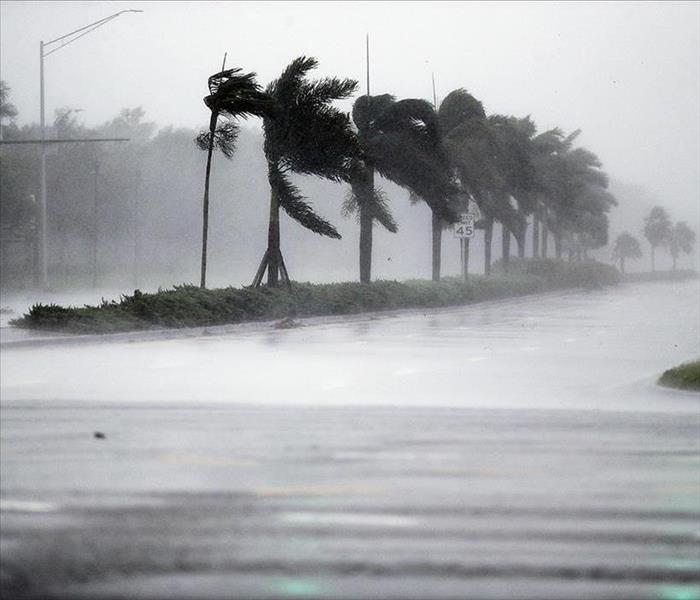2020 Hurricane Season Safety Tips
5/1/2020 (Permalink)
 The 2020 Hurricane Season is predicted to have stronger hurricanes than is typical making it important for Florida residents to put safety first
The 2020 Hurricane Season is predicted to have stronger hurricanes than is typical making it important for Florida residents to put safety first
Hurricanes can be terrifying. Even a minor storm often leads to a trail of destruction stretching for miles once the storm passes. While hurricanes are dangerous, the good news is that it is possible to prepare for them. As hurricane season creeps up, hurricane safety needs to be a priority. All those living in hurricane-prone areas should and must make hurricane safety one of their primary concerns. The good news is that it is possible to mitigate the worst effects of any storm. Advanced preparation and careful attention to detail are the keys to coping with any hurricane season.
Evacuation Plans
In many instances, it is apparent where a hurricane is headed. Weather forecasters can often see the potential path of any hurricane at least several days in advance. Now is the time to think about what is going to happen should you be in the path of that storm. It's a good idea to look for local resources. Many communities are well aware of the possibility that hurricane season may have a huge impact on their area. They take advance steps to ensure that all residents have a safe place to stay or a way out no matter the strength of the storm.
For those with special needs, hurricane safety is especially important. Seniors may need medications as well as wheelchair accessible shelters. If you have a baby, they may need a formula or a safe area to prepare it. This goes true for other supplies. A supply of diapers and changes of clothing should ideally be readily available. Pets also need special care during a storm. Some shelters want to make sure people with allergies can come there so they don't allow any pets. Find out which shelters nearby let you bring your pets with you so they can stay safe.
Food and Supplies
Food and other supplies may be at a premium in the period before, during, and after the storm. As the season begins, now is the time to create a list of things you're likely to need. If you're taking daily medications, you need to know where they are and make sure you have at least a week's supply on hand. Create a bag with your supplies in easy reach. If you're staying, you should have food that won't spoil and water that is safe to drink. Items that don't need to be refrigerated like nuts and snack foods can fit in nicely in any packed bag.
Other items should also be in easy reach. Power may be off temporarily for an extended period. Flashlights with plenty of spare batteries are essential. Make sure you know where they are before the storm season starts. Banks can be out of cash. Credit card machines may not be working. Keep a certain amount of cash in a safe and easy to reach the place before the season begins. A cell phone is also a must. Chargers should be available so you can use them at home and on the road.
Insurance Policies
Many people carry insurance against hurricane damage. Know what those policies cover before the season starts. You may need to access your policy number. Keep insurance policies and other important documents with you or nearby. It's a good idea to examine all of your rooms before the season starts. Take detailed pictures of your belongings. This way, once the storm hits, you'll have the documentation you need to prove to your insurance company exactly what was lost. Detailed personal records can also help you get things back as you want once the storm is done.





 24/7 Emergency Service
24/7 Emergency Service